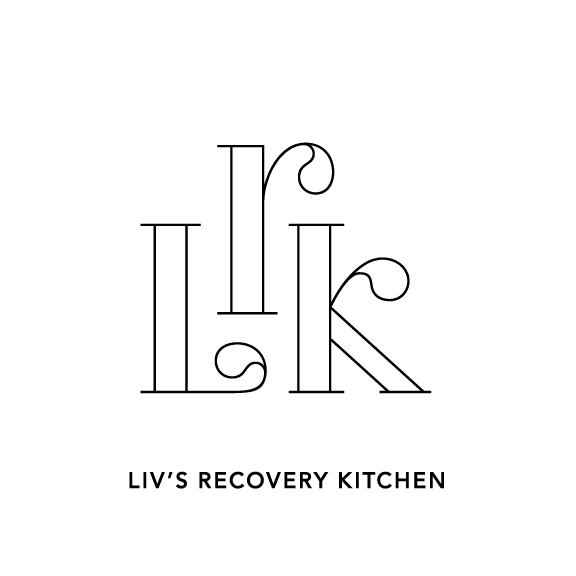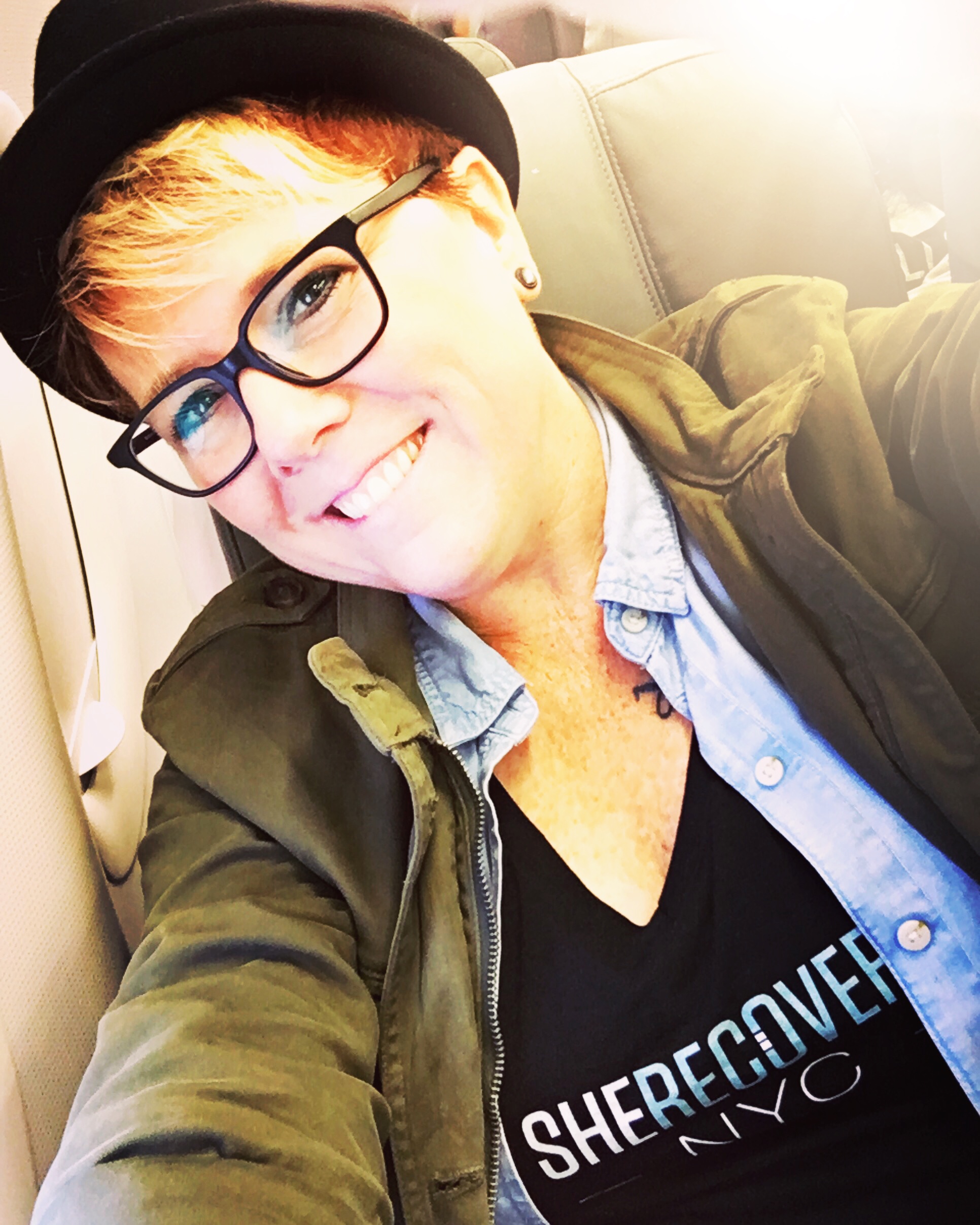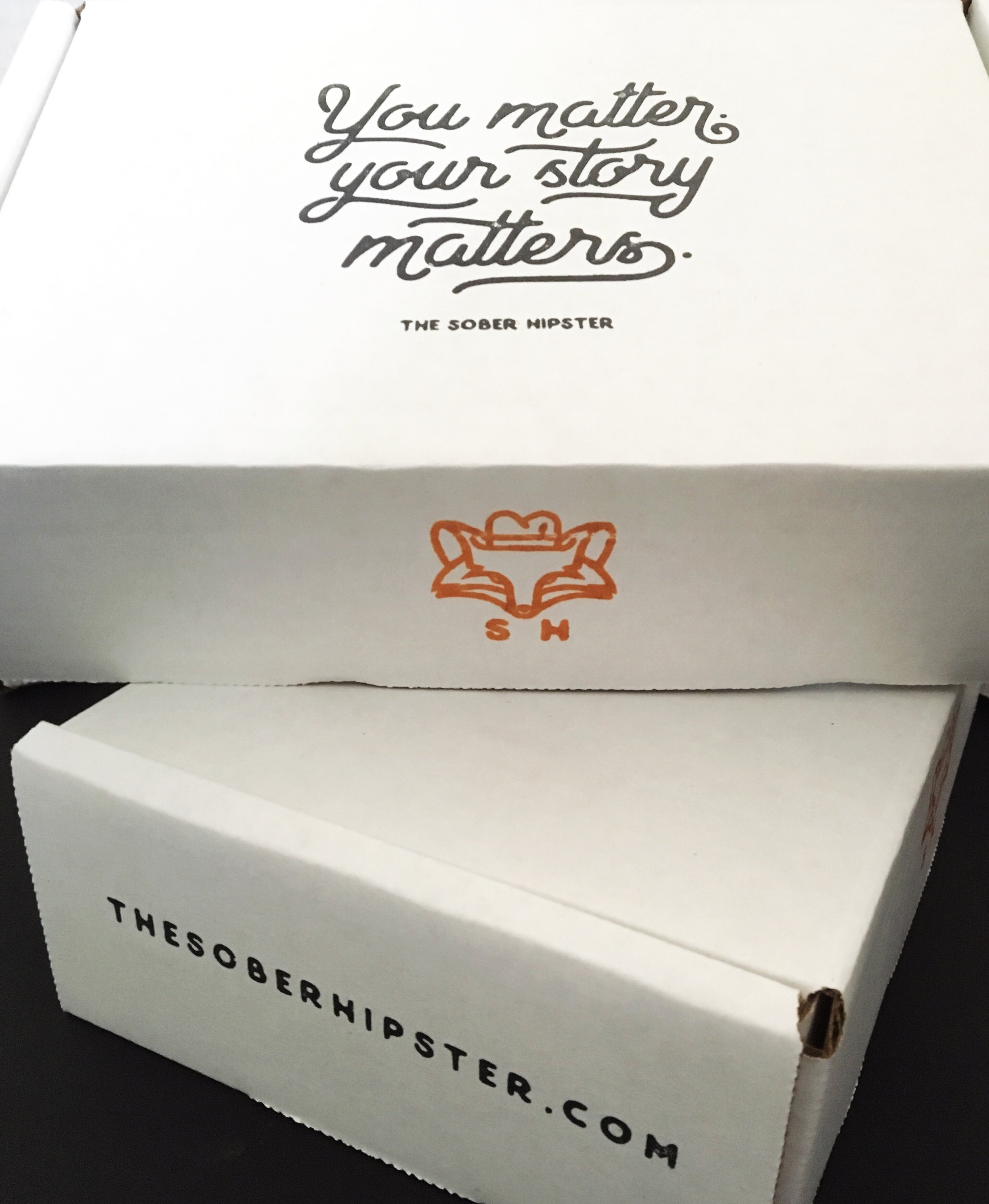Interview with Lisa Schmidt
Lisa Schmidt is on Liv's Recovery Kitchen this week. The woman behind the incredible Story Box and The Sober Hipster. Lisa talks about suppressing her sexuality and how that impacted her addiction, the power of story and art therapy in addiction recovery.
Interview with Lisa Schmidt
Liv: Let’s kick off with a food question: what have you had for breakfast today?
Lisa: Scrambled egg (cage free) on a toasted English muffin.
Hiding Sexuality
Liv: Moving to your story, you said that people may know you as, ‘…the little girl pressured to be attracted to boys, sneaking wine coolers and keeping girl crushes closer than secrets. They don't fully know the woman who did her best for 17 years to make a marriage to a great guy work.” How did hiding your sexuality, and being under such pressure, influence your drinking?
Lisa: Hiding my sexuality was something I had done since the second grade. I didn’t know any different. I didn’t begin to realize the pressure until I was thirteen and entered middle school. It was the time when girls and boys started “going together”. I wanted to fit in and belong, so I had to pretend to like boys too. Around this same time, I discovered drugs and alcohol. It’s fair to say that from the seventh grade all the way through to adulthood being under the influence and dating were synonymous.
Religion & Sexuality
Liv: You were a youth director in a local church in the height of your addiction. How did religion impact your addiction and you finding your truth?
Lisa: Organized religion taught me the meaning of “we love you, but…” Here are just a few examples of what I’ve encountered: "We love you, but being gay is a sin." "We love you and you can be gay, but just don’t act on those feelings." "We love you, but we offer a small group for people struggling with being gay." "We love you, but you can never be a leader in the church because you’re gay." So to say that organized religion negatively impacted finding my truth is an understatement. Fortunately, my relationship with my higher power and the God of my understanding isn’t dependent on organized religion.
Finding Addiction Treatment
Liv: In 2013, you found refuge in a treatment center which led to your getting sober. Tell me what prompted the decision to get help? What was your moment of clarity?
Lisa: My moment of clarity came in the form of a failed suicide attempt in October 2013. I went to bed thinking I would not wake up the next day. To my surprise, I did. My therapist at the time also had a moment of clarity and recognized that I needed PTSD and trauma counseling, which was beyond his expertise. But he worked diligently on my behalf to find a treatment center. I took a leave of absence from work, moved to a new town, and began a journey that would change my life forever.
Liv: You talked of using art therapy as a means to share your truth and come to terms with your sexuality. Tell me about that?
Lisa: When I began trauma therapy, I had all of these thoughts and feelings I didn’t know what the f*uck to do with. I couldn’t even tell you what I was feeling! I literally had to carry around a sheet of paper with facial expressions and the name of the emotion listed underneath to be able to tell the therapists when they asked. It was overwhelming and frustrating. And then I discovered art therapy. Art therapy gave me creative expression for what I was feeling and then allowed me to put it into words and share my truth.
The Sober Hipster--Your Story Matters
Liv: Art therapy had such an impact upon your life, that you decided to launch The Sober Hipster with the tagline You matter.Your Story Matters. What do you mean by that?
Lisa: At my lowest point (described above), my thought process was everyone would be better off without me. That changed the day I sat down with the director of the intensive outpatient program at Transitions in Ocala, FL. During my intake, I told her bits and pieces of my story (the ones I could manage to get out) and she listened so intently. I could see that she really cared. At one point, she even had tears in her eyes. I walked out of her office and for the first time in my life I believed, “Lisa, you matter. Your story matters.”
Liv: You launched a story box, “a tool designed for women wanting to approach their recovery creatively. By purchasing The Story Box, you receive an opportunity to start the journey of art therapy privately, easily and affordably.” Tell me how it works?
Lisa: The Story Box is where creativity + recovery meet. The contents include a custom journal, 2 pens, mod podge and applicator, a temporary tattoo, ear buds, 6 quote pics, thank you card and 15 story cards. Story cards are exercises in art therapy, mindfulness, meditation, journaling, positive affirmation and self-care. What’s awesome is you don’t have to be artistic to use The Story Box because the story cards give you step by step instruction and guidance to carry out each exercise. The Story Box is available on my website and ships directly to your mailbox or door.
Note: You can find this on our resource page (click here).
Liv: What are some of the success stories of the box?
I haven’t received success stories of The Story Box yet. So far the feedback has been very positive about the box itself and contents. I am in the process of adding that feedback in the form of quotes/reviews to my website. I will also be adding a page where people can share testimonials about The Story Box. It’s so early in the endeavor that most women have only had their box for a short amount of time.
The Physical Body in Addiction Recovery
Liv: Moving on to the physical aspect of addiction recovery—can you tell me how your relationship with your body has changed in recovery?
Lisa: Food was my first addiction. It started when I was ten years old. My parents divorced and life changed, but food didn’t. Food was constant and always there for me. I thought freedom from drug and alcohol addiction would also bring freedom from food addiction. It hasn’t. I still eat my feelings sometimes.
Liv: How has your relationship with food evolved?
Lisa: To be honest, my relationship with my body is the same in recovery as it has been all of my life. A f*cking rollercoaster ride. I’ve been sizes that got me the coveted compliments like, “have you lost weight?” and “you look great!” I’ve also been sizes that elicited self-talk like, “you’re so fat and disgusting!” and “how will anyone ever love you?” I’ve never just loved myself regardless, which is why I’m coming out with The Story Box on body image in August. It’s time to fully embrace who I am whatever size or shape. And I believe there are a lot of women out there just like me.
Top 5 Addiction Recovery Tools
Liv: Last, what are your top five recovery tools?
Lisa: My top five recovery tools are: prayer, creative expression, mindfulness, books and podcasts, and a good therapist.
Contact Lisa (and find The Sober Hipster) here: Twitter, Instagram, Website





